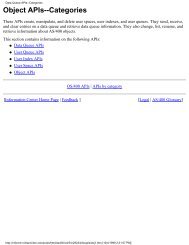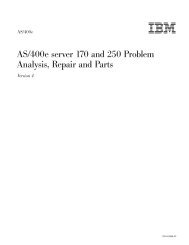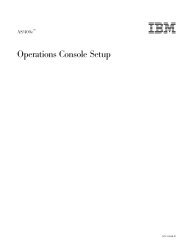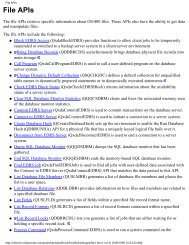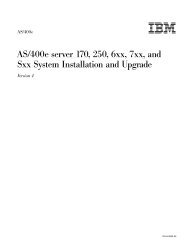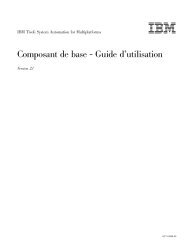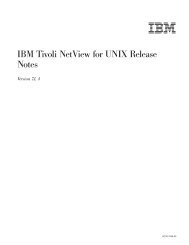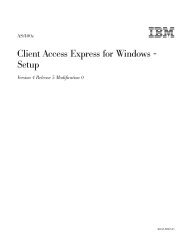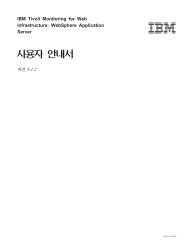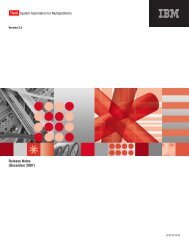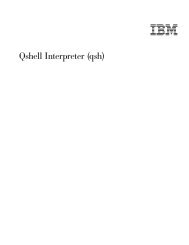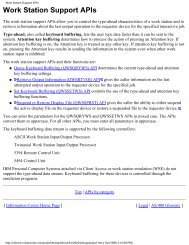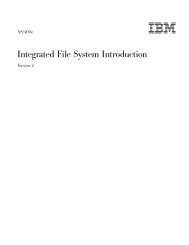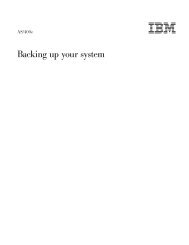You also want an ePaper? Increase the reach of your titles
YUMPU automatically turns print PDFs into web optimized ePapers that Google loves.
e processed in arrival sequence, COMPRESS(*NO) has no meaning because a<br />
keyed access path never contains any deleted records.<br />
Printing records (PRINT, OUTFMT, and TOFILE(*PRINT) parameters)<br />
Note: You can use the parameters described in this topic on the CPYF,<br />
CPYFRMDKT, CPYFRMQRYF, and CPYFRMTAP commands.<br />
You can print a list of all records copied, all records excluded, or all records<br />
causing ERRLVL output errors. You do this by specifying PRINT special values on<br />
a copy command. You can specify one or more of these listings on a single copy<br />
command, using character or hexadecimal format.<br />
You can also print an unformatted listing of records. See “Creating an unformatted<br />
print listing” on page 106 for more information.<br />
Printing a list of all records copied:<br />
To print a list of all of the records that you copied, specify TOFILE(*PRINT) on the<br />
copy command. The records are printed using the <strong>IBM</strong>-supplied printer file<br />
QSYSPRT.<br />
Printing a list of excluded records:<br />
Specify *EXCLD on the PRINT parameter to print a listing of only the records that<br />
you excluded from the copy. When you specify PRINT(*EXCLD), the records print<br />
in the from-file format.<br />
Printing a list of copied records:<br />
Specify *COPIED on the PRINT parameter to print a listing of only the records that<br />
you copied. When you specify PRINT(*COPIED) and MBROPT(*UPDADD), the<br />
records copied and the records updated appear on the same listing. A message<br />
follows each updated record that states that it was an update.<br />
Printing a list of records that cause errors:<br />
Specify *ERROR on the PRINT parameter to print a listing of the records that<br />
caused ERRLVL output errors. (The ERRLVL parameter still controls the number of<br />
recoverable errors that can occur.) See “Preventing errors when copying files” on<br />
page 122 for information on error recovery and the ERRLVL parameter. Only the<br />
number of records up to one (1) greater than the ERRLVL value that is specified<br />
are printed in the *ERROR listing. The listing is similar to the PRINT(*COPIED)<br />
and PRINT(*EXCLD) listings.<br />
Selecting the format of the listing:<br />
Use the OUTFMT parameter to specify whether your listing prints in character or<br />
hexadecimal format. The default value is *CHAR, and records print in character<br />
format. If you specify *HEX, records print in both character and hexadecimal<br />
format.<br />
If you specify TOFILE(*PRINT), the OUTFMT parameter again specifies the format<br />
that is used to print the records.<br />
Chapter 4. Copying files 105



